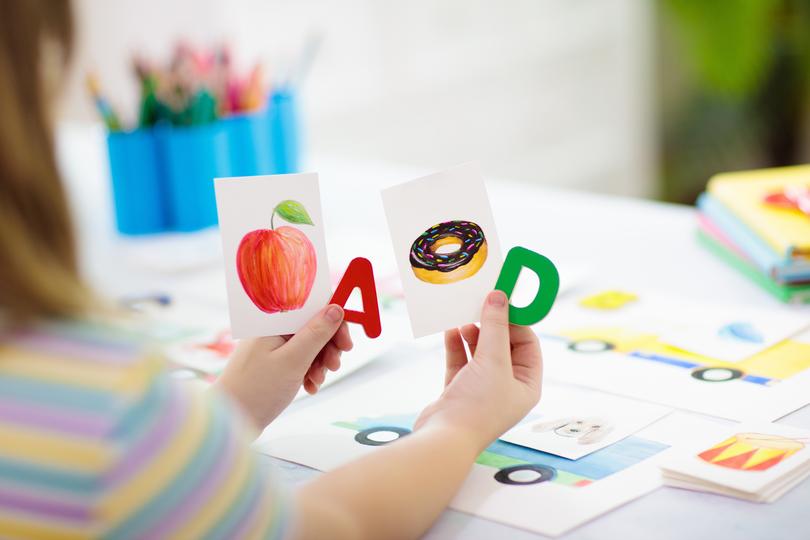SIMON BIRMINGHAM: NAPLAN results prove there’s a need for a universal phonics skills check in Year 1
I turned 50 in June. Threw a bit of a shindig at an Adelaide Hills winery, complete with bonfire and music. Great night. Bit dusty the next morning.
Today’s release of NAPLAN results made me think back to my birthday show. What does a 50th birthday party have to do with standardised school testing, you say?
Well, I’d booked an acoustic guitarist to come and play a few classics. My mates may well blackmail me forever with their footage of me taking the microphone later in the evening.
Sign up to The Nightly's newsletters.
Get the first look at the digital newspaper, curated daily stories and breaking headlines delivered to your inbox.
By continuing you agree to our Terms and Privacy Policy.Josh, the guitarist, turned up and introduced himself to me. Then he said, “I’m a teacher, and my principal asked me to pass on a message to you.”
Having been the federal education minister from 2015 to 2018, many things pass through your mind at this point. What was said in the staffroom when the teacher/musician had apparently googled his Saturday night booking to see if it really was who he thought it was?
“She said to say thank you for the phonics skills check,” said Josh.
I didn’t see that one coming. We politicians aren’t used to that much praise.
The phonics skills check was one of those good policy ideas that, as a minister, you feel a little like you’re bashing your head against a wall over.
I made some progress advancing the policy back in 2017, but not as much as I would have liked, largely due to partisan, political and union opposition.
So, it’s to my delight to now hear much wider political and academic advocacy for a policy that should have been universally adopted seven years ago, if not earlier.
What is the phonics skills check, where did the idea come from, and why does it matter?
The idea came from the United Kingdom, where long-serving schools minister Nick Gibb applied it to help address declining reading skills through evidence-based teaching and earlier intervention.
We all instinctively know that reading skills matter to a child’s education. In truth, we cannot overstate the importance of basic reading skills. The ability to read is the foundation stone upon which nearly all further learning depends.
Yet in one of the most bizarre and self-harming debates of our modern times, how our children learn to read was somehow turned into an ideological war.
You’d have thought that science and evidence should have guided decisions about the curriculum, teaching plans, and assessments of something as fundamental as learning to read.

Instead, trendy academic philosophies based on what is known as “whole language” teaching took hold. The idea is essentially that if you immerse children in a world of language and books they will instinctively learn to read and do so with greater depth and enthusiasm.
It works, for some kids. But if you struggle with the basic decoding of letters into sounds that make up words, then you quickly get left behind.
In contrast, direct instruction of phonics explicitly teaches the sounds that letters and combinations of letters make, which when combined give us words.
Not every student may need this type of instruction, but nobody is harmed by it and for those who do need it, it can be life-changing. Nor should it take the fun out of books and reading, as demonstrated by so many wonderful teachers.
The phonics skills check seeks to see if basic reading skills are being achieved by a child, after their first 12-18 months at school. It is a verbal early screening test, applied in Year 1, that is light touch, takes between five to seven minutes, and assesses the ability of students to successfully decode letter combinations into words and sounds.
As a screening check, it allows for early intervention by teachers to help students who may otherwise be left behind, and struggling throughout their school years. By applying it consistently across schools, it can also help principals and school systems to identify and address more systemic failures.
While many unions and some left-wing politicians railed against the idea in 2017, some showed courage. Susan Close, the then Labor education minister in South Australia adopted the phonics check as policy, which in a sensible act of bipartisanship was subsequently implemented by her Liberal replacement, John Gardner.
As in the UK, it hasn’t fixed every problem in school education. But progress has been made and our children are better off as a result.
At long last, I now hear more governments and ministers ignoring the idealogues and willing to follow both logic and evidence. In response to the understandable concerns about standards that come with the release of today’s NAPLAN tests, the news is full of State and Federal Labor ministers suddenly talking up the phonics check. Hallelujah!
The current Federal minister should seize upon these conversions by driving a hard bargain in his funding negotiations with the States, to ensure this reading skills check, along with an accompanying one for basic numeracy skills, are finally applied universally and consistently.
Our kids deserve no less. And, who knows, he may one day be thanked for it in the most unlikely of circumstances.
